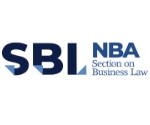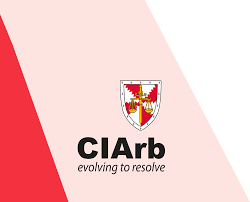Key Highlights Of The Investment And Securities ACT, 2025
Introduction
In a landmark move to expand Nigeria’s capital market, the President signed the Investment and Securities Act, 2025 (“ISA”) into law on 29th March 2025, replacing the ISA 2007. This new piece of legislation introduces sweeping reforms aimed at aligning Nigeria’s investment landscape with obtainable global practices.
Notably, ISA 2025 strengthens the regulatory powers of the Securities and Exchange Commission (“SEC”) and recognizes digital assets such as cryptocurrencies as securities, promotes innovation and investor protection. The ISA enhances market transparency, deepens oversight, and supports economic growth by making Nigeria’s capital market more attractive to both local and foreign investors.
Key Highlights of the ISA
- Strengthening the regulatory powers of the SEC under the ISA:
The ISA strengthens Nigeria’s capital market framework by aligning it with global best practices. This allows the SEC to retain its “Signatory A” status under the International Organization of Securities Commissions (IOSCO) Enhanced Multilateral Memorandum of Understanding (EMMoU). This alignment boosts Nigeria’s attractiveness to international investors by fostering greater regulatory transparency and investor confidence in the market. In addition, the ISA has put to bed, the regulatory friction between the Central Bank of Nigeria (CBN) and SEC, making SEC the primary regulator of the securities market in Nigeria.
- Recognition of Digital Assets:
Under the ISA, virtual assets including cryptocurrencies, blockchain-based tokens, and investment contracts are now formally recognized as securities. This landmark development solidifies Nigeria’s position as the third largest digital asset investor globally, while providing regulatory clarity and legal assurance to players in the fintech space. Furthermore, it places Virtual Asset Service Providers (VASPs), Digital Asset Operators (DAOPs), and Digital Asset Exchanges under the direct regulatory oversight of SEC, ensuring increased market integrity and investor protection.
- Enhanced Investor Protection:
The new Act places investor protection at its core. Its firm stance against Ponzi schemes and illegal investment operations marks a bold move to cleanse the market of fraudulent practices. For too long, many Nigerians have fallen victim to deceptive schemes promising unrealistic returns. With this legislation, a clear legal framework now exists to shut such schemes down and hold perpetrators accountable. Perpetrators risk up to ten years jail term for operating illegal schemes. This stronger regulatory posture is expected to deter fraudsters and provide everyday investors with greater peace of mind.
- Unclaimed Dividends:
The ISA reinforces the requirement that all unclaimed dividends be transferred to the Unclaimed Dividend Trust Fund, which is managed under the supervision of SEC. Any handling of unclaimed dividends contrary to the provisions of the law is strictly prohibited. Non-compliance attracts a direct administrative penalty of ₦10 million, along with an additional ₦50,000 for each day the violation persists without the need for court proceedings.
- Adoption of Global Best Practices:
The introduction of the Legal Entity Identifier (LEI) requires all capital market participants to obtain and use an LEI. This measure significantly enhances transparency within the capital market, making it more difficult for bad actors to operate unnoticed. By ensuring that all key entities involved in transactions are identifiable, regulators can more effectively monitor activities, detect risks, and address irregularities at an early stage. For investors, this creates a more secure and trustworthy market environment. Although individuals may not interact with the LEI directly, its presence strengthens the overall integrity of the system, providing access to more reliable information and boosting investor confidence.
- Commodities Exchanges:
The ISA introduces stringent regulations for the establishment and operation of commodity exchanges, clearing houses, and warehouses, all of which must be registered with SEC. The regulation of commodities trading strengthens price discovery mechanisms within the Nigerian capital market, fostering increased investment in agricultural production. By creating a more transparent and efficient trading environment, it also improves farmers’ access to financing.
- Broadening Access to Capital through Expanded Issuer Eligibility:
The ISA broadens the range of entities eligible to raise funds from the public, marking a major step toward a more inclusive and dynamic capital market. This expansion supports the introduction of innovative financial instruments, such as crowdfunding, while remaining subject to the approval of SEC and other safeguards provided under the ISA.
Conclusion
With its emphasis on transparency, accountability, and investor protection, the Investments and Securities Act 2025 sets a new benchmark for integrity in Nigeria’s capital market. By establishing a stronger regulatory foundation, the ISA ensures that investors can participate with greater confidence in a safer and more transparent financial ecosystem.
Berkeley Legal is a leading full-service business law firm in Nigeria. We provide comprehensive and sophisticated range of specialized and personalized legal services that are designed to meet the various needs of a highly diversified local and international businesses.
If you would like to know more about the Key Highlights of the Investment and Securities Act 2025, or perhaps desire to invest in the capital market in Nigeria, please contact info@berkeleylp.com.
The information provided in this article is for general informational purposes only and does not constitute legal advice.







